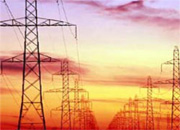Opening the meeting of the Expert Council, Deputy Head of FAS Anatoly Golomolzin said that “the antimonopoly authority proposed for consideration of the expert community the issues and problems of connecting low-capacity, non-energy intensive telecommunications means to electric mains”.
Members and participants of the Expert Council heard reports by the Director of the MTS Department on Regulatory Risk Management, Andrey Rego, and Deputy Head of FAS Department for Control over Electric Power Industry, Alexei Voronov.
In their opinion, it is necessary to solve the issues of high costs of connecting low-capacity, non-energy intensive telecommunications means, including communications equipment, as formalize the fast-track procedure for connecting such facilities. It was pointed out that simplifying the procedure for placing communications equipment of residential real estate is already specified in Clause 7 of the Action Plan for “Developing Competition in Telecommunications” approved by a decree of the Government of the Russian Federation of 3 February 2014.
“A decision was made to take operators’ proposals as the basis for to refine them further; together with the interested agencies and organizations devise practical measures that will enable to not only solve the current issues with locating the means of communications in residential premises but also regularize relations of the growing segment of information-and-communications technologies and electric power enterprises”, summed up the discussion Anatoly Golomolzin.
The second item on the agenda was a report on developing competitive electric power market drafted by Vitaly Kuzmin, an independent expert on the electric power market.
The report outlines the main results of the reforms of the electric power industry in 1992-2014 and efficiency issues on the modern Russian electric power market related to excessive generation reserves, and the consumer position not allowing to affect overall goods circulation and competition conditions. The speaker suggested strategic approaches to market development based on introducing direct contracts between generators and consumers, changing the pricing procedure and refining the overall market architecture.
Representatives of electric power consumers, generation and sales supported the initiatives to change the market model, stating that developing a new model would require joint efforts and a specialized Working Group should be formed.
Overall, the competitive sector (generation, sales) demonstrated higher efficiency than the regulated sector (electric power transmission). Commercial market infrastructure at the federal level is well established (“Market Council” Non-Profit Partnership, “ATS” OJSC, “TsFR” OJSC). Some fundamental issues are not fully solved, however: increasing efficiency in the part of performance as well as developing the electric power industry. Participants noted that non-efficiency is increasing; moreover the right to choose a supplier and influence consumer pricing, possibility influence efficiency and reliability factors and demand management was not supported.
“As a result of the discussion, members of the Expert Council decided that it is necessary to improve competition mechanisms, to this purpose a Working Group involving representatives of electric power consumers and power suppliers, the Market Council and the grid operator a well as all interested ministries and departments.
The task is to draft an action plan with the measures for developing the market of electric power (capacity) that simultaneously comprise elements of a model of the electric power industry of the future and solutions to overcome crisis phenomena. We plan to pilot projects reflecting market specifics in different price zones and market segments that can be started already this year”, thinks the Chairman of the Expert Council, Anatoly Golomolzin.
28 Февраля 2026 | суббота | 19:09


